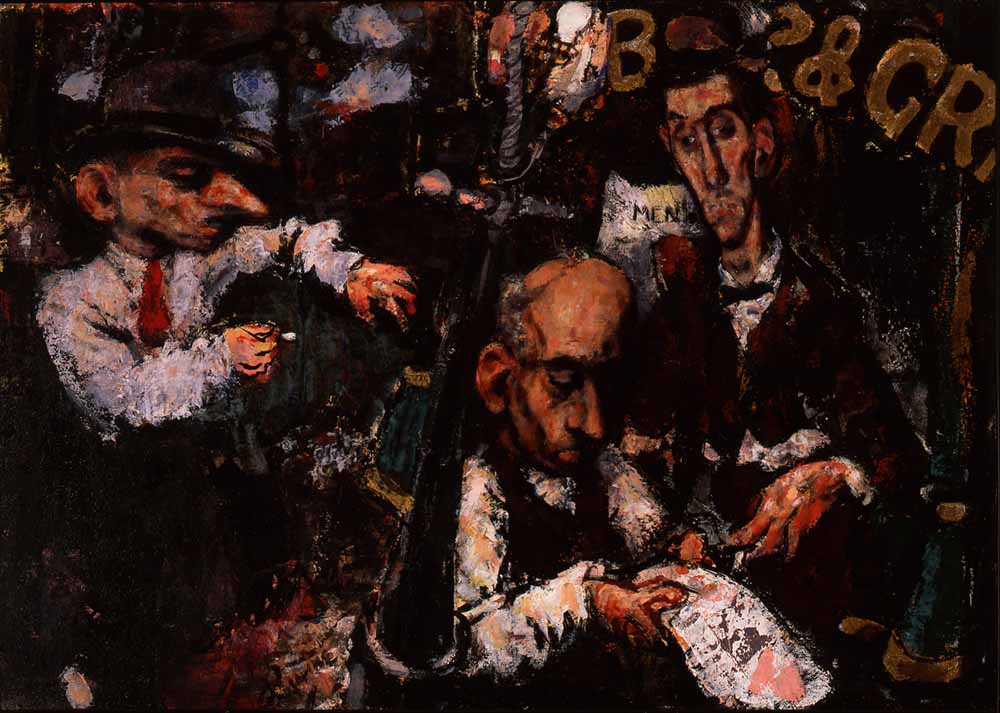
By Bob Hicks
One of the odd things about fame and notoriety is that they freeze people in time, to those moments or years when they were outsized public figures, no matter that they might have eaten breakfast and traveled and read books and made love and voted in the local county commission race and helped fix Thanksgiving dinner with their children for many years afterwards in a state of semi-obscurity. It’s the story Billy Wilder was getting at in Sunset Boulevard, I suppose, although he was more concerned with Norma Desmond’s unhinged inability to deal with her loss of celebrity than in the public’s collective amnesia about her.
The other day my friend John, who’d just been in Kentucky, excitedly showed me a snapshot he’d taken of an oil painting he’d discovered on a distillery wall. It was a Thomas Hart Benton, and a good one, which Benton had painted for the distiller in the early 1950s, a couple of decades after the artist’s brawny regionalist images had set him firmly in the public mind as a sort of Grant Wood with muscles. We were surprised that he’d created such a good and representative piece so late in life — or so we thought, until we looked it up and discovered Benton had lived until 1975, well into the Age of Aquarius. It wasn’t his fault that art and audiences had moved on to other things: He was fixed in our minds as a highly talented 1930s American regionalist.
Then, last night, I discovered while looking through ArtDaily.org that Jack Levine, one of my favorite American painters, had died on Monday at age 95. Here‘s the ArtDaily link, which pairs the Associated Press obituary by Karen Matthews with a good color reproduction of Levine’s wonderful 1946 painting of post-war avarice, Welcome Home. And here is William Grimes’s very good obituary from the New York Times.
Again, I was surprised, because I’d had no idea Levine was still alive. He seemed a figure from an earlier time, a social realist with a strong satiric bent, one of those admirable 1930s and 1940s characters who believed that art had a crucial and very public role to play in the great brawling melodrama of American democracy. Ben Shahn was another.